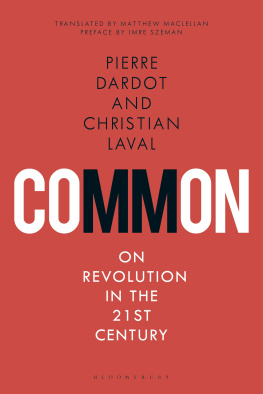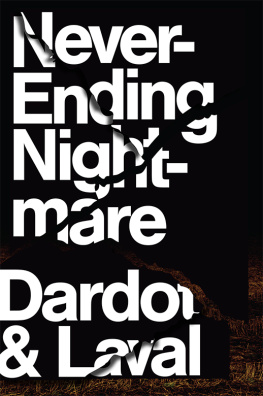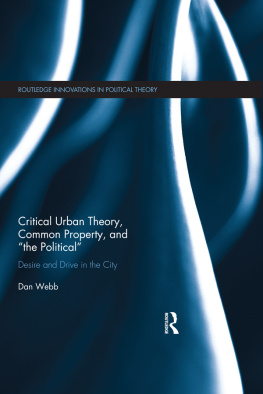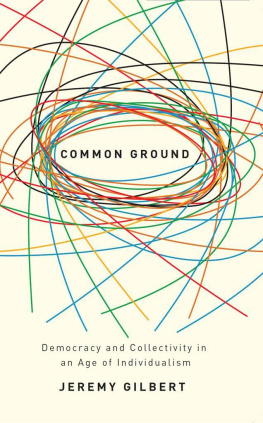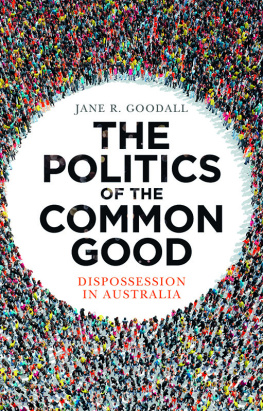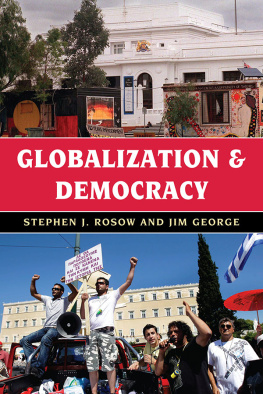
Common
Also available from Bloomsbury
How to Be a Marxist in Philosophy, Louis Althusser
On Resistance, Howard Caygill
Alienation and Freedom, Frantz Fanon
From Communism to Capitalism, Michel Henry
The Politics of Aesthetics, Jacques Rancire
Disparities, Slavoj iek

The common day and nightthe common earth and waters,
Your farmyour work, trade, occupation,
The democratic wisdom underneath, like solid ground for all.
Walt Whitman, The common place
Leaves of Grass
Advice to non-Communists;
Everything is communal, even God.
Charles Baudelaire, My Heart Laid Bare
Mlash said: There is nothing common in me.
And for you, what might it be?
Alexis Pelletier
Penses indites et commentes de Mlash
Contents
Our study of the principle of the common is greatly indebted to all those who participated in the collective work of the research group Question Marx and the seminar Du public au commun (From Public to Common) that we co-hosted with Antonio Negri and Carlo Vercellone at the Collge international de philosophie and the Centre dconomie de la Sorbonne between 2010 and 2012.
We would like to thank all those who offered contributions during our working sessions and who participated in the public discussions we organized, in particular: Philippe Aigrain, Laurent Baronian, Sad Benmouffok, Alain Bertho, Yves Bonin, Philippe Chanial, Jos Chatroussat, Franois Chesnais, Serge Cosseron, Nathalie Coste, Thomas Coutrot, Patrick Dieuaide, Jean-Michel Drevon, Franois Duchamp, Giorgio Grizotti, Nicolas Guilhot, Laurent Jeanpierre, Mathieu Lonard, Anne Le Strat, Danile Linhart, Alberto Lucarelli, Jason Francis Mc Gimsey, ric Martin, Ugo Mattei, Jean-Marie Monnier, El Mouhoub Mouhoud, Gabriel Nadeau-Dubois, Paolo Napoli, Jorge Novoa, Bernard Paulr, Jrme Pelisse, Pascal Petit, Frdric Pierru, Franck Poupeau, Anne Querrien, Judith Revel, Hossein Sadeghi, Christophe Schneider, Andre Steidel, Ferhat Taylan, Bruno Thret, and Olivier Weinstein.
We also want to thank those who provided us with invaluable pieces of documentation, notably Gilles Candar, Guy Dreux, Louise Katz, Jean-Louis Laville, Alexis Pelletier, Pierre Sauvtre, and Valentin Schaepelynck. And we cannot forget Corine and Thierry Richoux, for whom the noble and ancient craft of winemaking is also an art of the common.
The book would not have been possible without our editor, Rmy Toulouse, who provided us with unwavering support from the beginning, and whose many suggestions helped make our analysis as clear as possible.
And we thank, once more, Anne Dardot and velyne Meziani-Laval, our respective spouses, whose support, confidence, and advice was essential, as always.
Imre Szeman
The world, it seems, is a disaster. The relentless drive for profits and unfettered consumerism are eating up the planets resources and poisoning it in the process. The rich are getting richer, and richer, and richer still. The poor and the precarious have, in turn, given up on even the fantasy of class mobility, knowing full well that the game is rigged. Global warming will violently impact human, animal, and plant communities over the remainder of this century, and indeed, centuries still to come. Nowhere are the true desires and capacities contained in the ideal of democracy to be found in actually existing politics. Nothing is going right, or, for that matter, ever has. Were living in the remnants of a teenagers house party, held when parents are away for the weekend. Even if it means we might get in trouble, were now expecting them to return to clean up the broken glass and adjust the angles of the crooked picture frames. Except they wont be returning; there never were any parents in the first place.
Given the state were in, what is to be done? Critics and theorists of all stripes have proposed innumerable political prescriptions. If the present is a disaster, they say, then lets live and work together differently. Lets move beyond capitalism to a more just and equitable social and economic system. Lets change our understanding of and relation to nature. Lets figure out a truly democratic way of being in relation to one another. Out of the billions of individuals that make up the planet, lets come together to craft new processes and practices, actively and collectively, that would allow us, finally, to inhabit a common. The evidence before our eyes today suggests not only that all this is far easier said than done, but also that weve likely been heading down the wrong path for far, far too long.
Pierre Dardot and Christian Lavals Common: On Revolution in the Twenty-First Century proposes we take a new direction. All the efforts since the nineteenth century that tried to renew both political thought and social theory in order to more effectively confront capitalism have failed to produce a fully coherent politics of the common, they write. The fundamental aim of Common is nothing less than to succeed where all these others have failed. Through the extensive and multifaceted overview of the history of the communal ideal carried out in its pages, Common lays the foundations for a politics tailored to the challenges of this new century. This is possibly the best account of the communal idea that exists in a single book, beginning with the ideas of old standbys likes Plato and Aristotle, through to Proudhon and Marx, and up to such strange bedfellows as Nobel Prize-winning economist Elinor Ostrom and political theorists Michael Hardt and Antonio Negri. Even those who might at times take exception to their arguments will find this book to be an ideal place from which to start their own assessment of where we go from here to transform the common from idea into reality.
The labor of moving through the history of the common, testing out and checking in on varied articulations of it, isnt intended by Dardot and Laval as an exercise in compiling a new recipe of the political out of the bits and pieces of old ideas and practices (a pinch of Proudhon, a dash of Marx). The critical exploration undertaken here is meant instead to grapple with the political and conceptual missteps that have hitherto impeded the development of the common. There are two key insights that emerge as central to Dardot and Lavals understanding of how, moving forward, we should better conceive of the practices and processes shaping the common. The first and most critical point is the need to stop theorizing the common as a socio-political formation produced by capitalism. This is, of course, the contribution made to political thought by Marx, and affirmed (if in distinct ways) by the various Marxisms that have followed in his wake. The common (or, in the case of Marx, communism) has to pass through capitalism, it has been imagined, because of the way in which capitalism assembles those collective forces of labor that will eventually bring about its demise. Dardot and Laval are generous readers of Marx (and indeed of all the thinkers whose work and ideas they explore). However, they view any theory of political transformation that cedes political struggle to the motors of history as limited in the extreme. Common owes a debt to the groundbreaking work of Hardt and Negri, whom Dardot and Laval see as the first thinkers to directly take up the challenge of systematically re-imagining the common for the twenty-first century. Yet if they see Hardt and Negris theory of the common as problematic, it is because they see it as repeating a spontaneism endemic to the left thought: the view that history will generate those new modes of cooperation and socialization that will bring about the conditions necessary for a new common. We freely admit that capital creates an objective antagonism between itself and its workers, Dardot and Laval write. Yet given the various forms capital has taken since the mid-nineteenth century, were less sure about the proposition that the capitalist institution of forced cooperation and mechanization will ultimately produce a fully socialized individual who has developed all his faculties as a result of an increase in free time. The common has to be fought for in the present, by those living in the present, who want to bring about a different social order than the one in which they currently find themselves.
Next page
